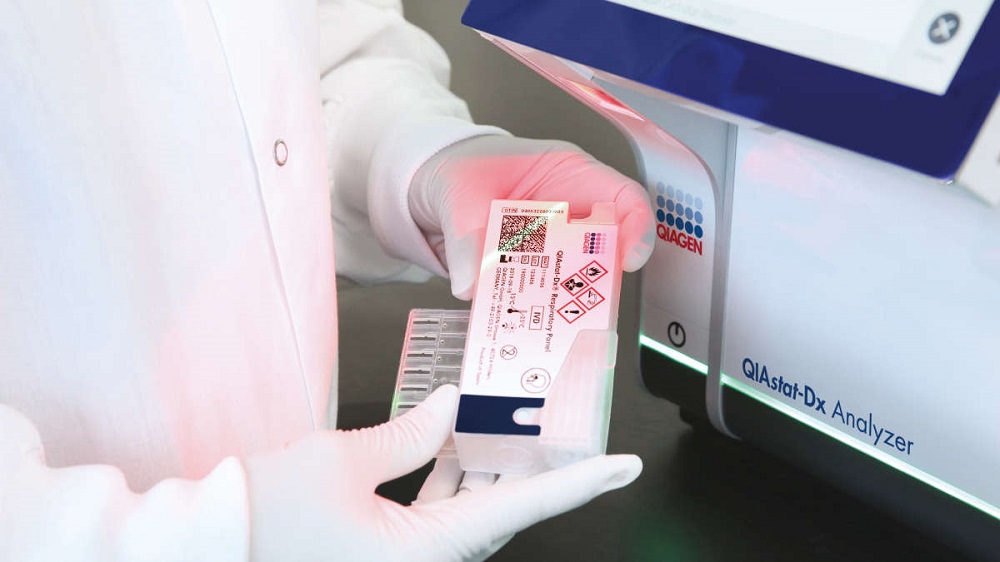Upgraded Syndromic Testing Analyzer Enables Remote Test Results Access
Posted on 29 Mar 2024
QIAGEN (Venlo, the Netherlands) has released the QIAstat-Dx Analyzer 2.0, including the Software 1.6 upgrade. This represents a significant advancement from the initial QIAstat-Dx Analyzer 1.0, offering enhanced capabilities for the accurate, rapid, and cost-effective identification of complex syndromes. The system, which is designed for laboratory settings, incorporates economical, disposable cartridges that integrate sample preparation with all necessary reagents on board. Leveraging multiplex real-time PCR technology, it can identify and distinguish between various pathogens, delivering results within approximately one hour. Additionally, the system enables the display of cycle threshold (Ct) values and amplification curves, providing deeper analytical insights beyond those achievable with endpoint PCR or alternative methodologies.
A key feature of this upgraded system is the introduction of the QIAstat-Dx Operational Module PRO, which is equipped with a 64-bit processor and 4GB of RAM. This enables the Remote Results Application, a pioneering tool in syndromic testing that allows for the remote access, review, and confirmation of diagnostic test outcomes via desktop and mobile devices, promoting enhanced collaboration across the healthcare system. This innovation facilitates a more streamlined approach to diagnostic testing, ensuring greater flexibility and collaboration between central and regional laboratories for timely and accurate results.

Moreover, the QIAstat-Dx Analyzer 2.0 offers the capability for local in-house visibility of test results over a shared network. Enhancements to the QIAsphere Insights epidemiology dashboards provide users with access to both local and global pathogen epidemiology data from all connected QIAstat-Dx devices, with all information being identified to maintain strict data privacy standards. The system also boasts improved responsiveness, automatic software updates, support for 12 languages, and improved remote management and security features. The QIAstat-Dx suite includes tests for diverse panels, including Meningitis/Encephalitis, Gastrointestinal, and a Respiratory SARS-CoV-2 Panel, each capable of analyzing multiple pathogens simultaneously, marking a significant leap forward in the field of diagnostic testing.
“With the QIAstat-Dx Analyzer 2.0 and the Software 1.6 upgrade, QIAGEN is committed to transforming the molecular diagnostics experience by streamlining the connection between labs and healthcare professionals,” said Fernando Beils, Senior Vice President, Head of the Molecular Diagnostics Business Area at QIAGEN. “The integration of the Remote Results Application enables swift and efficient access to crucial test results, ensuring timely and accurate diagnoses for enhanced patient care.”














